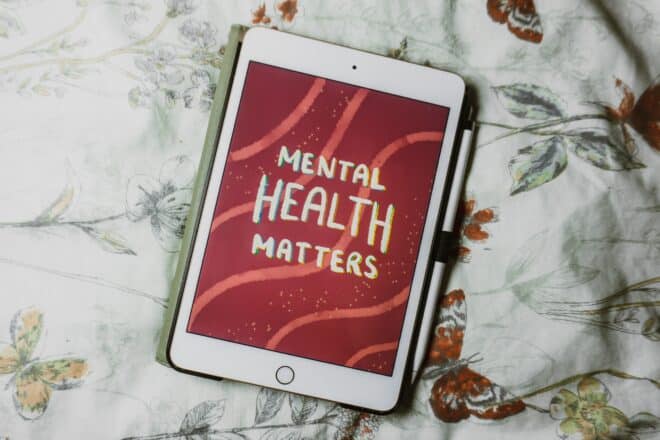In the intricacies of aging, everyone may face considerable life changes such as devastating illnesses or the loss of a cherished one that could have profound effects on your mental health. While some older adults may navigate these in their stride, others may grapple with emotions such as intense grief, social alienation or relentless loneliness, giving rise to mental disorders like depression and anxiety.
However, rest assured, there are effective treatments available to bolster your mental wellbeing and enhance your quality of life. As an older adult, it’s crucial to stay watchful for symptoms like stark changes in mood, energy level, or appetite, challenges in sleeping, increased worry or stress, prevalent thoughts of death or suicide, among others.
There’s also abundant aid readily accessible through health care providers or via the ‘Help for Mental Illnesses’ webpage maintained by the National Institutes of Health (NIH). Mental health hotlines, numerous resources, brochures, factsheets, and even the potential of participating in clinical trials offer older adults comprehensive and varied assistance. By recognizing these symptoms and seeking help, older adults can enhance their mental health and overall quality of life.
Understanding Mental Health in Older Adults
Defining mental health in the context of aging
When you think of aging, you might first consider physical changes, but it’s equally crucial to think about mental wellness. Mental health, in the context of aging, involves your ability to maintain positive mental wellbeing throughout the changes and demands that come with growing older. It’s about meeting your full potential despite challenges, remaining positive and involved in social activities, and preserving resilience in the face of adversity.
Potential impacts of aging on mental health
As you age, various life changes can significantly impact your mental health. This could include serious illnesses, or dealing with the loss of a loved one. These disruptions can bring about feelings of grief or sadness, and potentially lead to more serious mental health conditions.
Highlighting the resilience and adaptability of some older adults
It’s not all negative, though. Many older adults prove to be extraordinarily resilient and adaptable. Despite the trials that come with aging, a great number of seniors manage to adjust well, maintaining positive mental health and remaining active in their communities.
Recognizing Symptoms of Mental Illness in Older Adults
Identifying changes in mood, energy, or appetite
As in people of any age, certain signs might hint at a possible mental illness in seniors. Notable changes in mood, energy levels, or appetite could all be potential symptoms.
Signs related to sleep disturbances
Interrupted or altered sleep patterns are also potentially telling. Difficulty falling asleep, staying asleep, or sleeping too much can all be indications of an underlying issue.
Recognizing increased worry or stress
Does the senior in your life seem to be constantly worried or stressed more than you would expect? Excessive worrying could be a sign of an anxiety disorder, or generally indicate poor mental health.
Finding signs of obsessive thinking or compulsive behavior
If you notice that an older adult in your life is displaying patterns of obsessive thinking or compulsive behavior, it can be an indication of a condition like Obsessive-Compulsive Disorder.
Talking about death or suicide: A red flag
One crucial symptom to stay vigilant for is any talk about death or suicide. This is a serious warning sign and should be addressed immediately, with the older adult directed towards professional help.
Mental Disorders Commonly Affecting Older Adults
Understanding depression in older adults
Depression is a common mental illness among older adults due to numerous potential factors, such as the loss of loved ones, health issues, and social isolation. Understanding, recognizing, and treating depression in seniors can significantly improve their quality of life.
Managing anxiety disorders
Anxiety disorders also frequently affect seniors due to stresses of aging, such as health concerns or fear of dependence. With management techniques and treatment, older adults suffering from anxiety can enjoy a better quality of life.
Exploring Bipolar Disorder in aging individuals
Bipolar Disorder, characterized by extreme mood swings, can manifest in older adults. Accurate diagnosis and appropriate treatment can pave the way for seniors to lead fulfilling lives despite this disorder.
Addressing eating disorders
Although not typically associated with older adults, eating disorders can, indeed, affect this demographic. Recognizing and addressing these could significantly improve the seniors’ physical and mental health.
Preventing suicide in older adults
Suicide, sadly, is quite prevalent among the older population. Increasing awareness, providing help, and offering treatment opportunities can play a crucial role in preventing this devastating outcome.
Importance of Seeking Help for Mental Illnesses
Debunking stigma attached to seeking help
Getting help for mental illnesses is nothing to be ashamed of. It’s important to debunk the stigma around mental health and promote a culture where seeking help is seen as a strength, not weakness.
Understanding that mental illnesses are treatable
Mental illnesses, even in older adults, are not a mandatory part of aging. However, these conditions are treatable. With the right help and support, seniors can not only manage these conditions but also flourish.
Improving quality of life through treatment
Effective treatment allows older adults with mental disorders to live a more vibrant, fulfilling life. Thus, seeking help improves not just their mental health but also their overall quality of life.

Where to Seek Help for Mental Illnesses in Older Adults
Role of health care providers in mental health support
Health care providers play a critical role in supporting seniors’ mental health. Such professionals can recognize symptoms, offer diagnosis, and provide effective treatment options for these individuals struggling with mental health conditions.
Utilizing NIH’s ‘Help for Mental Illnesses’ webpage
The ‘Help for Mental Illnesses’ webpage provided by NIH serves as a valuable resource for seniors facing mental health issues. Here, they can find information about different conditions and how to seek help.
Making use of health hotlines
In emergency situations, health hotlines can prove life-saving. Examples include the 988 Suicide & Crisis Lifeline, Veterans Crisis Line, and Disaster Distress Hotline, which provide urgent, confidential, and free support.
Resources Available for Mental Health Support
Availability of brochures and fact sheets
Numerous brochures and fact sheets are available that offer information on mental health issues in older adults. They cover topics like Anxiety Disorders, Bipolar Disorder, Depression, Eating Disorders, and Suicide Prevention.
Various health information and services for older adults
Apart from these resources, various services are aimed specifically at seniors to help with mental health. They cover an array of subjects and offer numerous strategies for effectively managing mental health issues.
Introduction to online mental health resources
A plethora of online resources offering mental health support are available to older adults. With the rise of digital technology, accessing these resources has become much easier, making it a convenient option for many.

Role of Clinical Trials in Mental Health Research
Understanding the purpose of clinical trials
Clinical trials fundamentally aim to discover newer, better prevention, detection, and treatment strategies for conditions like mental illnesses. They provide valuable insights that drive the evolution of mental health care.
The importance of older adult participation in clinical trials
Older adults’ participation in clinical trials is substantial. Their involvement can lead to the development of treatment options tailored specifically for them, potentially improving their care.
Impact of clinical trials on developing treatment options
The results obtained from clinical trials are essential in developing novel treatment options. They pave the way for newer, better alternative approaches to address various mental illnesses in older adults.
Research by the National Institute of Mental Health
Overview of NIMH’s research on mental disorders in older adults
The National Institute of Mental Health (NIMH) carries out comprehensive research focusing on mental disorders in older adults. Its findings are tremendously beneficial in improving mental health care for seniors.
Understanding the studies conducted by NIMH
NIMH conducts numerous studies to investigate various mental disorders affecting seniors. These include but are not limited to studies on depression, anxiety disorders, bipolar disorder, and eating disorders.
Accessing research findings on NIMH’s Clinical Trials webpage
The Clinical Trials webpage of the NIMH serves as a platform where anyone can access the findings from their studies. It provides valuable insights about various mental disorders and their treatments in older adults.
Practical Steps for Older Adults to Maintain Mental Health
Healthy lifestyle choices for maintaining mental health
A healthy lifestyle plays a substantial role in maintaining mental health. Opting for a balanced diet, engaging in regular physical activity, avoiding harmful substances, and ensuring adequate sleep can all contribute significantly.
Importance of social connections and activities
An active social life has enormous benefits for seniors’ mental health. Engaging in social activities, maintaining friendships, and cultivating new relationships can significantly lower the risk of mental health problems.
Role of regular mental health check-ups
Just like routine physical check-ups, regular mental health check-ups are essential for older adults. These can help in early detection of potential issues, leading to more effective, timely intervention.
Supporting Older Adults with Mental Illness
Role of family and friends in supporting older adults
Family and friends play a vital role in supporting seniors coping with mental health issues. Their active involvement in the older adults’ lives can play a significant part in their journey towards better mental health.
Importance of empathy and understanding
When interacting with older adults dealing with mental health issues, empathy and understanding go a long way. Offering a listening ear, practicing patience, and showing compassion can make a big difference.
Navigating mental health services and care options
Once a mental health issue is identified, knowledge of the available mental health services and treatment options becomes a cornerstone. Utilizing the resources available can significantly aid in effectively managing mental illness in older adults.

